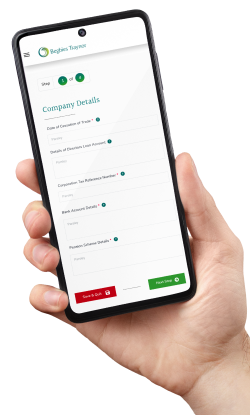If your company is liquidated it means that all affairs have been wound down, its assets sold, creditors repaid as far as possible, and its name has been removed from the register of active companies held by Companies House.
The liquidation of one business doesn’t necessarily prevent you from starting a new company and taking on the role of director in the future, however. In many cases business failure is a result of elements outside the control of company directors, such as general market decline, rather than deliberate action to run the business into the ground. Due to this, the majority of directors of liquidated companies will not be prevented from incorporating a future venture.
With that being said, if you do choose to start a new company, there are stringent rules when it comes to reusing the name of a company which has been liquidated. Knowing these rules is imperative to ensure you do not fall foul when setting up a new limited company.
Concerned about the National Insurance increase?
For the 2024-25 tax year, the rate of employer National Insurance increases from 13.8% to 15% adding yet more pressure onto already squeezed cash flows. If you are worried about the impact this could have on your company’s finances, talk to the experts at UK Liquidators. As licensed insolvency practitioners we can explain your options and help you plot a way forward. Call today on 0800 063 9262.
When you start a new company following liquidation, you may feel that using the same name, or one that sounds similar, can help you get the business off the ground quickly as it’s already a recognised commercial entity in your industry.
However, it is precisely for these reasons why rules and restrictions are in place. The rules on reusing company names are laid out in Section 216 of the Insolvency Act, 1986 and are in place to prevent directors deliberately trying to misrepresent themselves and their company, and mislead former creditors or the public at large. Passing off a newly incorporated company as being the same entity as a previously liquidated company, is strictly against these rules.
There are serious consequences to incorrectly reusing the name of a liquidate company; the rules are extremely strict, and it’s important to be aware of the potential consequences of getting it wrong. Failure to adhere to these restrictions include personal liability for any debts of your new company, financial penalties, and even imprisonment in the most serious cases.
Liquidation Portal
For Company Directors

While strict regulations prohibits the reuse of the same or similar company name after that company has been liquidated, there are three exceptions which can allow you to use the name of a liquidated company. They are:
You can apply to court to reuse the name of your liquidated company, but you must do so within seven days of liquidation. This process is known as applying for ‘court leave’ – essentially, requesting official permission to use the same or a similar name.
If you purchase the whole - or the vast majority of the business - from the liquidator, you may be able to reuse the company’s name. An important part of this process, however, is to inform the creditors of your liquidated company that you’ll be reusing the company name, and also place an advert to the same effect in the Gazette.
Start your online liquidation today
If you have decided liquidation is the right option for your limited company, you can take the first step and begin the process online using our online portal. Starting the process is quick, simple, and can be done at a time that suits you. Your information will be submitted to your local UK Liquidators insolvency practitioner who will be with you every step of the way. Click here to start your company’s liquidation online.
If the new company has used the name for at least 12 months prior to the liquidation taking place, you may be able to continue to use the name, The new company must have been trading during this time, not simply registered and left dormant.
Reusing a company name outside of these three scenarios could have serious ramifications for you and other directors. Our experts at UK Liquidators can arrange a free consultation to establish whether you can legally reuse your company name – we operate from an extensive network of offices throughout the country.
By completing the test, you will receive:
If you are considering liquidation for your company, taking expert advice at an early stage is crucial. At UK Liquidators, our team of licensed insolvency practitioners are committed to providing limited company directors with the help and advice they need to make an informed decision.




Looking for immediate support?
Complete the below to get in touch